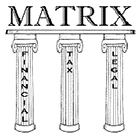Tax Implications for Self-Employed Consultants
Garfield Heights, Ohio – Picking up a second job to supplement household income in a tough economy is becoming more common. Many Americans are choosing to become consultants that visit homes to sell make-up, jewelry, candles, kitchen utensils and food products. Some may not realize the tax implications of becoming a sole proprietor and what they need to do to file taxes.
Conducting business as a sole proprietor is one of the simplest forms of operation. It’s easy to start a business operated as a sole proprietorship and equally easy to discontinue. Your first step when starting a business is to open a separate business checking account. It will be easier to track your deductible expenses if they are not commingled with your personal expenses. If you incurred expenses prior to opening your business, keep them separate from your other expenses. Special tax treatment applies to startup expenses.
It is important to keep track of your mileage, as you might be eligible to deduct it. If you are self-employed and maintain an eligible office in your home, you can deduct the mileage to and from your client/customer’s place of business, as well as between jobs. There are two ways to calculate your auto deductions – the standard mileage rate or actual expenses. The standard mileage rate is the easier method as you simply take your total mileage and multiply it by the current rate ($.535 for 2017). The actual expense method is exactly that, recording the actual expenses such as the cost of gas, oil, insurance, repairs, maintenance, tires, washing, licenses and depreciation. This method requires you to keep very detailed records and if you use your car for personal and business purposes, you’ll have to divide the expenses between the personal and business portion.
The IRS allows self-employed taxpayers to claim a deduction for home-based business expenses if they meet certain requirements. They must use the home office regularly and exclusively:
- As the principal place of business for a trade or business.
- As a place to meet with customers in the course of the trade or business, or in connection with the taxpayer’s trade or business, if the location is in a separate structure not attached to the dwelling unit.
This article contains general tax information for taxpayers. Each tax situation may be different, so do not rely on this information as your sole source of authority. Contact Steven Cook at Matrix III Income Tax Service, LLC for professional advice for your tax situation. Steven is an expert who keeps current on tax law changes as well as a member of the National Association of Tax Professionals. He can save you time and offer insight on how to use the tax breaks available to you. Call 216-332-7283 for more information.
# # #
